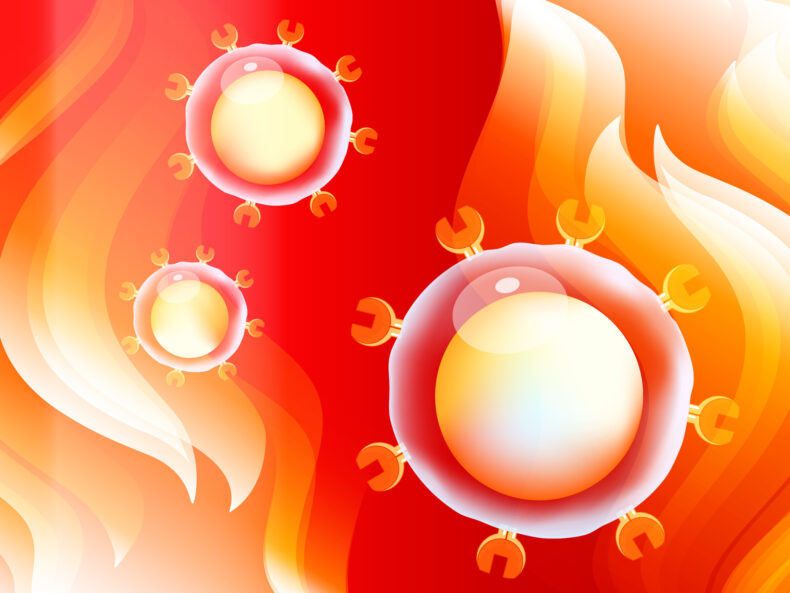by Amanda Johnson
Cancer cells can develop resistance to the treatments designed to eliminate them. Several studies have linked stress granules (SGs), cell organelles that form transiently in response to extracellular stress, to this phenomenon. However, how SGs protect cancer cells remains unclear.
Susan Wente, PhD, and Laura Glass, PhD, report their establishment of an experimental cell culture model system to investigate the link between SGs and cell resistance to toxic stress in Advances in Biological Regulation.
Using their system, these investigators discovered altered SG biology in a subpopulation of cells that acquired resistance during multiple rounds of chemotoxic stress treatment. They further found that the protein Gle1A was required for the survival response and that resistant cells secrete specific factors that confer treatment insensitivity to naïve cells.
These findings support a role for SGs in helping cells evade death. They also lay important groundwork for future investigations aimed at understanding and targeting SG-associated cell survival to improve cancer therapy efficacy.
This research was supported by the National Institutes of Health (grant GM051219).











